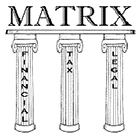Top 3 Things To Do Now Before 2018
With the recent passage of the Tax Cuts and Jobs Act, there are a few things individual taxpayers should consider doing now before the end of 2017. The tax reform which goes into effect on January 1, 2018, will make the following individual tax deductions more difficult to realize on a 2018 tax return.
1. Fewer taxpayers will itemize their tax returns for the tax year 2018 because the standard deduction will be higher. The higher standard deduction will cause many taxpayers not to realize a deduction for their charity donations. Make charity donations both in cash (check or charge card) and well documented non-cash contributions to qualified charitable organizations.
Documentation needed to take a non-cash qualified charitable contribution are a receipt from the receiving organization, an itemized categorical detail of what and quantity of items donated, and the stated fair market value for each of the items. See attached handout for fair market values.Charitable_Noncash_FMV_Guide_2017
2. Taxpayers who have received a property tax bill for the first or second quarter of 2018 should pay that amount before January 1 in order to take the deduction on the 2017 tax return. There is no limit on how much taxes can be claimed on a 2017 return whereas for 2018 the amount is capped. Beginning in 2018 taxpayers can claim a deduction for a combination of state and local income tax, sales tax, or real property tax in the aggregate amount up to $10,000.
3. Taxpayers should consider making their last fourth quarter estimated tax payments to Ohio and City before December 31 rather than waiting until the due date of January 15. For the tax year 2017, there is no limit to the amount of taxes claimed as a deduction. In addition, the standard deduction is lower in the tax year 2017, making it easier for taxpayers to itemize their deductions.
This written advice is not intended or written to be used, and it cannot be used by any taxpayer, for the purpose of avoiding penalties that may be imposed on the taxpayer for following the advice. Other factors may need consideration that would change the opinion presented.
